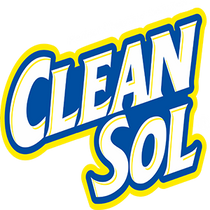Description
Dichloroisocyanuric Acid is a powerful and effective disinfectant and sanitizer that is widely used in various industries. With a concentration of 99%, it is highly reliable and provides a 99% reduction in bacterial counts. Its fast-acting formula and stability in a variety of conditions make it a top choice for killing harmful pathogens and keeping environments clean and safe.
Other Names:
- Dichloro-s-triazinetrione
- DCCNA
- Troclosene Sodium
CAS Number: 2893-78-9
Chemical Formula : C₃Cl₂N₃O₃
Average Molar Mass: Approximately 197.9 g/mol
Density: The density of dichloroisocyanuric acid may vary, but it is typically around 1.92 g/cm³.
Appearance: Dichloroisocyanuric acid is usually found as a white, crystalline powder or granules.
Odor: It often has a slight chlorine-like odor.
Applications and Uses:
- Water Disinfection: Dichloroisocyanuric acid is commonly used as a disinfectant in swimming pools, drinking water treatment, and wastewater treatment to control bacteria, algae, and other microorganisms.
- Disinfection Tablets: It is used in the production of disinfection tablets and granules for convenient water treatment.
- Cleaning and Sanitizing: In industrial and household settings, it can be used for cleaning and sanitizing surfaces and equipment.
- Textile Industry: It is employed in the textile industry for bleaching and disinfecting purposes.
- Agricultural Applications: Dichloroisocyanuric acid can also be used in agriculture for sanitizing and disinfecting purposes.
Storage and Handling Guidelines:
- Store dichloroisocyanuric acid in a cool, dry place away from direct sunlight and incompatible materials.
- Keep it in its original packaging or containers, tightly sealed to prevent moisture absorption and contamination.
- Avoid contact with reducing agents, strong acids, and organic materials.
- When handling, wear appropriate personal protective equipment (PPE), including gloves and safety glasses.
Safety Information:
- Dichloroisocyanuric acid is a strong oxidizing agent and should be handled with care.
- It can release toxic fumes, including chlorine gas, when in contact with strong acids or when exposed to high temperatures.
- Avoid inhalation of dust or vapors, and avoid contact with skin and eyes. In case of contact, rinse thoroughly with water.
- Do not mix dichloroisocyanuric acid with other chemicals unless specified by the manufacturer.
Technical Support:
- For technical inquiries and product information, please contact us at labchemicals.cleansol@gmail.com
Payment & Security

